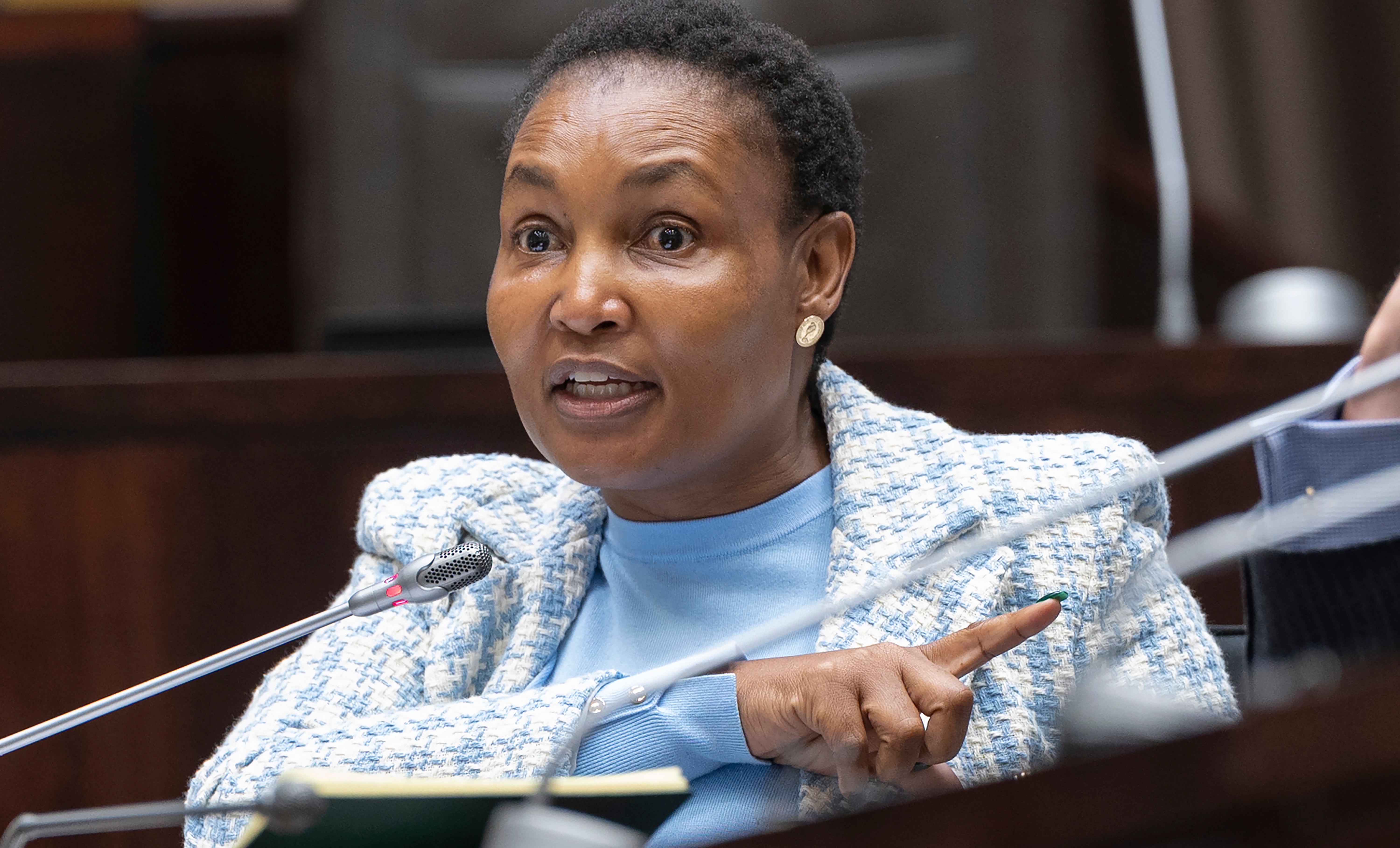South Africa's justice minister denies corruption allegations against her in a mutual bank scandal
South Africa’s justice minister has denied corruption allegations against her related to a mutual bank scandal in which thousands of retirees lost their life savings

Your support helps us to tell the story
From reproductive rights to climate change to Big Tech, The Independent is on the ground when the story is developing. Whether it's investigating the financials of Elon Musk's pro-Trump PAC or producing our latest documentary, 'The A Word', which shines a light on the American women fighting for reproductive rights, we know how important it is to parse out the facts from the messaging.
At such a critical moment in US history, we need reporters on the ground. Your donation allows us to keep sending journalists to speak to both sides of the story.
The Independent is trusted by Americans across the entire political spectrum. And unlike many other quality news outlets, we choose not to lock Americans out of our reporting and analysis with paywalls. We believe quality journalism should be available to everyone, paid for by those who can afford it.
Your support makes all the difference.South Africa's justice minister on Friday denied corruption allegations against her related to a mutual bank scandal in which thousands of retirees lost their life savings.
VBS Mutual Bank, which held the savings of retirees mostly from the northern Limpopo province and also unlawfully secured investments from local municipalities, was declared insolvent and bankrupt in 2018 after it emerged that more than 2 billion rand ($112 million) had been stolen from the bank.
Police investigations showed that money held by the bank was used to purchase luxury houses and vehicles, among other things, and to distribute financial gifts to various people and organizations, including political parties.
Justice Minister Thembi Simelane was only appointed to her position in June in the country's newly-formed government of national unity, after the former ruling African National Congress party lost its parliamentary majority in the May 29 election.
She is alleged to have received a “loan” to purchase a coffee shop from a company accused of receiving kickbacks for brokering unlawful investments for VBS from South African municipalities, including the Polokwane municipality where she was mayor at the time.
There have been calls from various quarters for Simelane to be removed from her position as justice minister, where she provides political oversight of the National Prosecuting Authority, which is trying corruption cases related to VBS.
Responding to questions in Parliament, Simelane insisted that she the loan she received was above board and that she had paid it back with interest. Simelane also denied that the loan was in anyway related to the municipality she was in charge of investing into the bank.
She denied any conflict of interest regarding the investigations into VBS' collapse and her responsibilities as a minister.
“The minister does not decide who should be prosecuted or not prosecuted. I offered impartiality to the NPA (National Prosecuting Authority),” Simelane said.
President Cyril Ramaphosa, whose government has promised to be tough on corruption in the government and state-owned enterprises since he was reelected as president this year, has faced pressure from opposition parties and civil society groups to fire Simelane.
Last week, he asked Simelane to provide an official response to him about the serious allegations against her.
Addressing the media after a state visit to China this week where he also attended the China-Africa summit, Ramaphosa said the matter regarding Simelane would not be “swept under the carpet.”
Investigations against those involved in the looting of the bank have already resulted in convictions against some of the alleged masterminds behind the scheme to steal from the bank.
Tshifiwa Matodzi, the bank's former chairman, was recently sentenced to 15 years in prison after entering into a plea deal with the state, and revealed the mechanisations of the scheme, including monies that were paid to the political opposition party Economic Freedom Fighters as “donations.”
Investigations into the bank collapse continue.